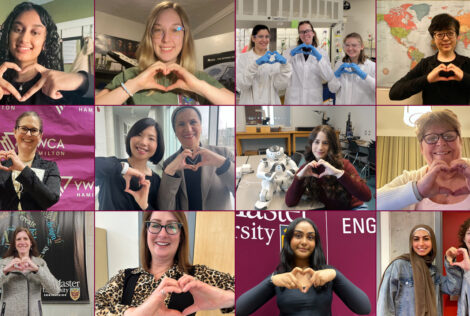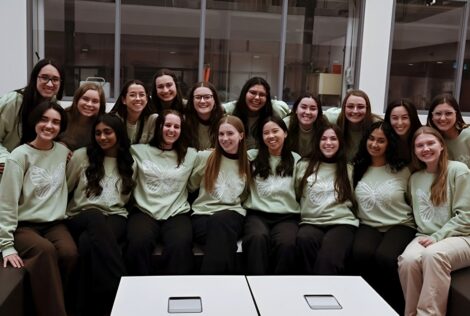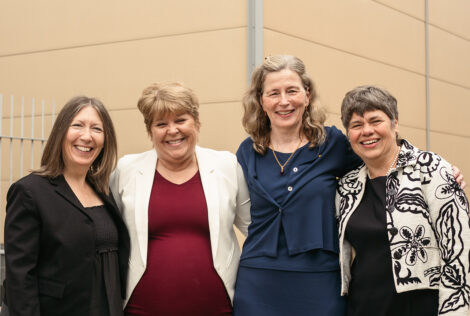
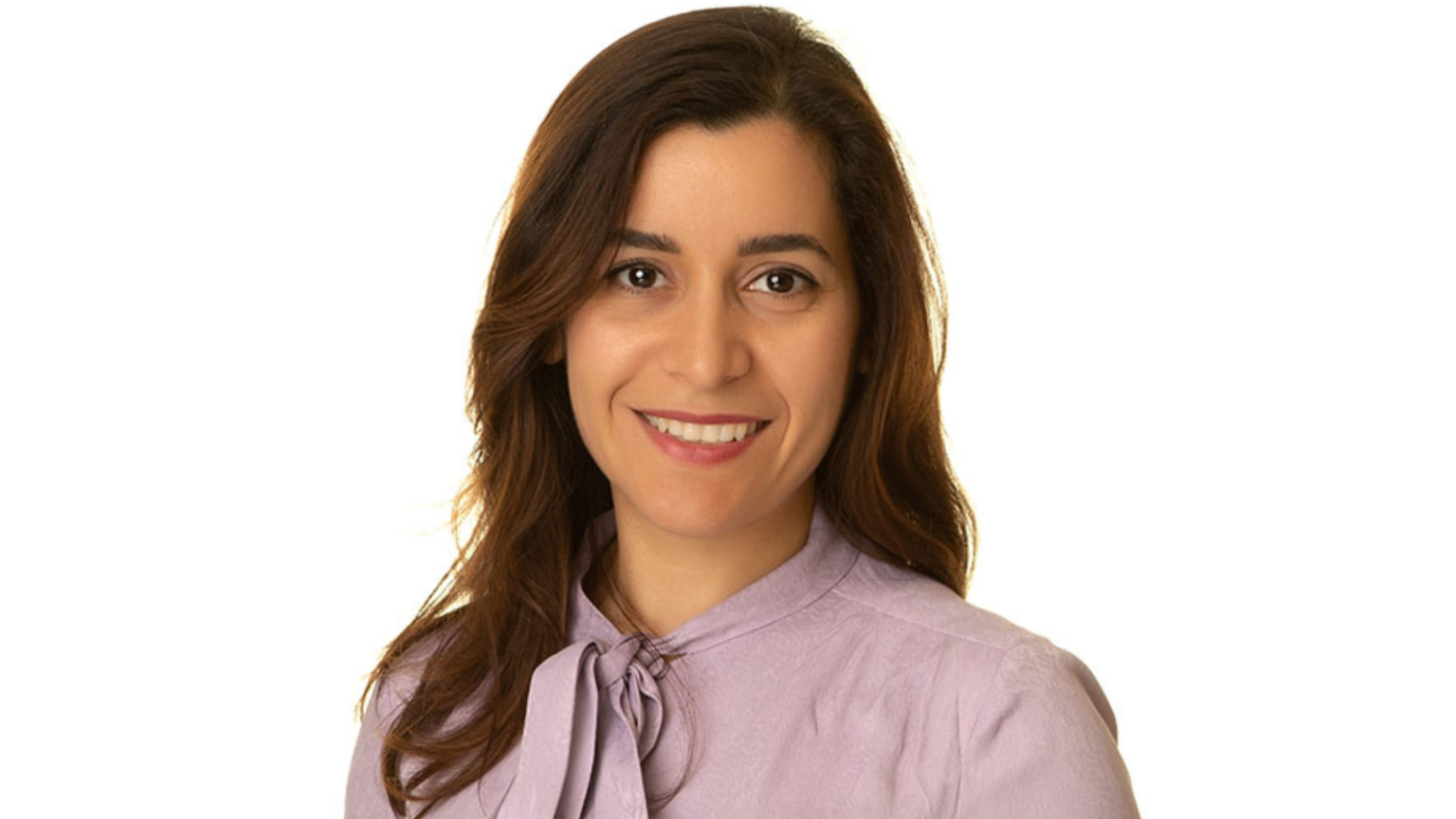
June 23 is International Women in Engineering Day
Imagine being a young girl with dreams of making a difference, but educational opportunities are limited. Against all odds, Marjan Alavi, Associate Professor in the W Booth School of Engineering Practice and Technology overcame multiple barriers on her journey to becoming an engineer with impact.
Early years in Iran
The Iran-Iraq war shaped Alavi’s childhood. The Iranian government prohibited girls from riding bicycles or playing in the streets. Despite limitations, Alavi and her younger brother completed do-it-yourself projects, reflecting that, “necessity is the mother of invention.”
One such project was constructing a four-wheel cart to transport their heavy garbage bin. “Although the cart did not turn well, it was quite exciting to turn our idea into reality and see it in action,” she reminisced.
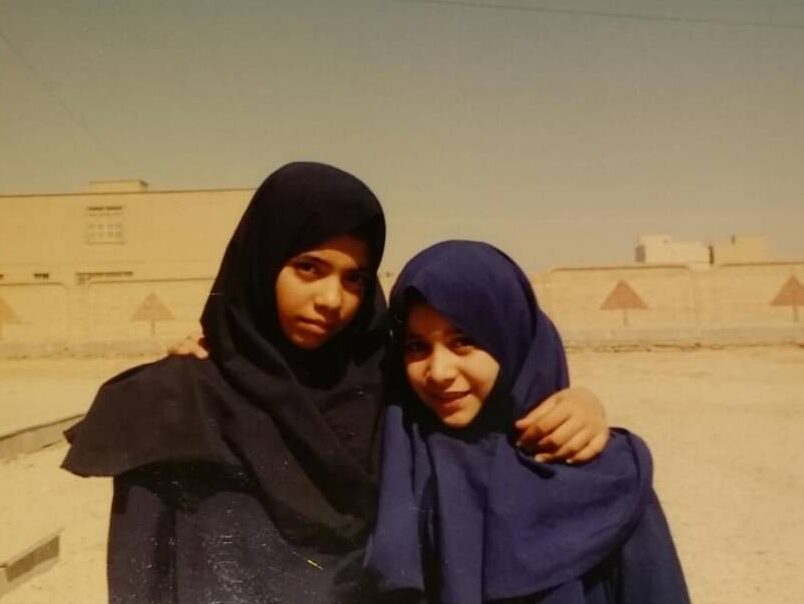
Fostering a love for engineering
Alavi’s passion for engineering was sparked by her father, a mechanical engineer. Her fascination with computers began at age nine when her father bought home an Intel 286 with a monochromic monitor. “I had a blue sweater with a picture of a horse knitted on it in white. I converted each knot of my sweater into a pixel and drew a picture of the horse by assigning a bit to each knot,” she recalls.
In Grade nine, Alavi’s family moved to Tehran, Iran’s capital city. A pivotal moment in her life trajectory came when her teacher asked the class to draft an essay on their career aspirations. Influenced by her uncle, an electrical engineering professor at Sharif University, Alavi wrote that she wanted to earn a PhD in electrical engineering and become a university professor.
Realizing that goal would be fraught with barriers, particularly as a female in Iran, Alavi’s resolve was only strengthened. After passing the national university exam, she was admitted to the electrical and computer engineering program at K. N. Toosi University of Technology (KNTU) in Tehran.
Professional and academic growth
Alavi gained industry experience at TransTel Engineering Pte Ltd., a telecommunications solutions provider in Singapore. This led to a direct-entry PhD program at Nanyang Technological University, although she instead decided to return to Iran for her master’s degree at Sharif University of Technology. She completed her master’s thesis in micro- and nano-electronics.
During her master’s studies, Alavi married and later moved to Behbahan, securing a full-time faculty position. However, Iran’s deteriorating political and economic conditions prompted her and her husband to emigrate. In 2009, she moved to Singapore to pursue her PhD, which she completed in 2014. Despite challenges in obtaining a work permit due to her Iranian citizenship, Alavi and her husband decided to move to Canada under the skilled worker program.
In 2014, Alavi and her husband relocated to Toronto, Canada. Alavi’s determination led her to the University of Toronto where Professor Reza Iravani reviewed her PhD thesis and hired her as a postdoctoral fellow through a Natural Sciences and Engineering Research Council of Canada grant.
Awaiting grant approval, Alavi worked as an electronic designer at Arshon Technology. Alavi’s involvement with The Institute of Electrical and Electronics Engineers Toronto Section expanded her professional network, landing teaching positions at George Brown College and Sheridan College.
Building a career and life in Canada
Recognizing the importance of networking, Alavi volunteered with the Institute of Electrical and Electronics Engineers (IEEE) Toronto Section. This led to her first teaching job in Canada, instructing digital electronics at George Brown. Impressed by her electronics and PCB experience, she secured a part-time calculus instructor position at Sheridan.
After her son’s birth in 2017, Alavi relocated to Hamilton. She resumed part-time teaching at Sheridan and joined McMaster University as a postdoctoral fellow while also interning at Quanta Technology. Balancing three jobs in different cities while caring for her one-year-old son was exhausting, she says. Realizing the need to focus on her family, Alavi applied for a full-time assistant professor position at McMaster University and was hired in July 2019. She now chairs the Master of Engineering in Manufacturing Engineering (MEME) program.
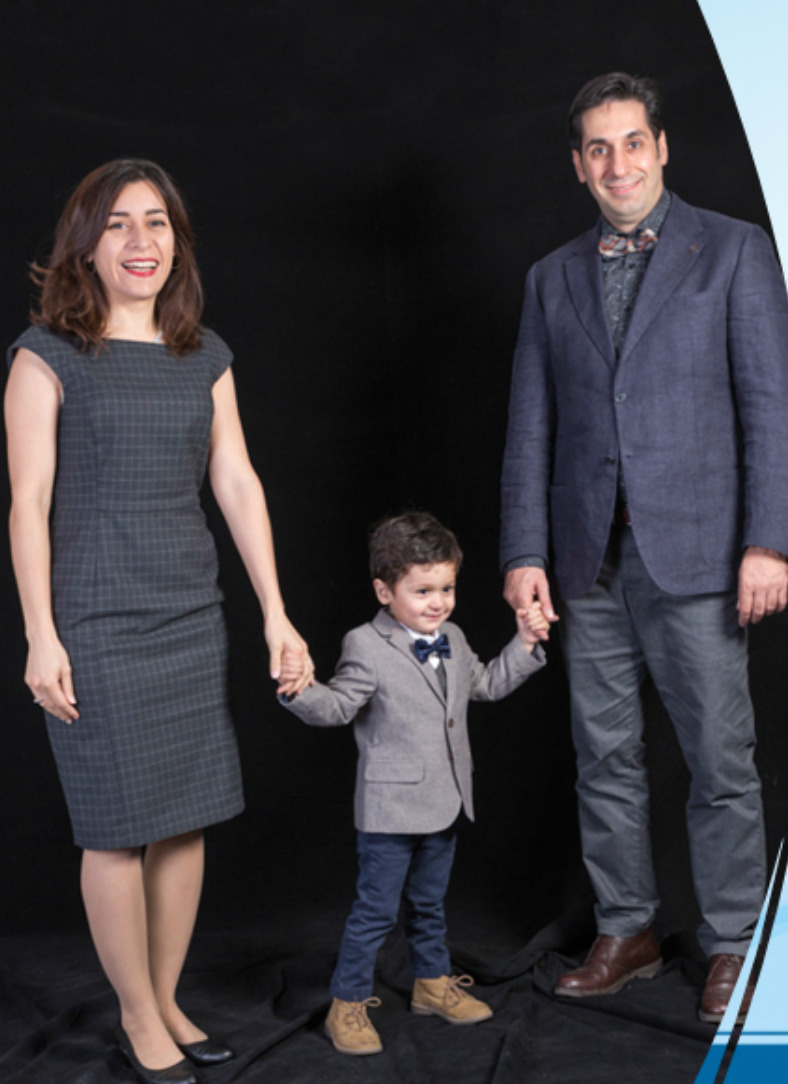
Commitment to IEEE and aspiring future generations of engineers
Alavi’s journey with IEEE began in her undergraduate studies. Despite restrictions and sanctions, she rejoined IEEE while working on her PhD at NTU. In Canada, she’s held numerous roles, including vice-chair of the IEEE Industry Applications Society (IAS)/Power Electronics Society (PELS) Toronto joint chapter and Treasurer of the IEEE Toronto Section. Her contributions were recognized with the 2019 IEEE Toronto Section Leadership Award. She continues her involvement with IEEE in Hamilton, serving as the Chair of the Women in Engineering (WIE) affinity group since January 2023 and Vice Chair of the Membership Services Committee, IEEE Canada / Region 7.
She encourages young professionals to be lifelong learners, build strong professional networks and persevere through challenges. “It is not enough to set goals and intentions for one’s own career,” she said. “Young professionals must work hard and be ready to handle any curve balls that life throws their way.”
Alavi’s journey from Iran to Canada is a testament to her resilience, determination and passion for engineering and education. She finds fulfillment in her dual role as an engineer and educator, appreciating the opportunity to work with young minds and collaborate on topical problems.
In December 2023, The IEEE Industry Applications Magazine published a short biography on Alavi’s life. Learn more about Marjan Alavi in “Paying it Forward, a Journey with Many Chapters.”

